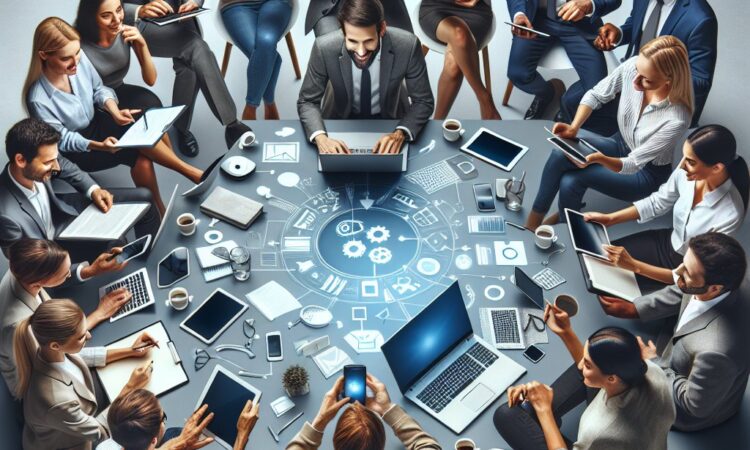The Impact of AI on the Workforce
**
The rapid advancement of artificial intelligence (AI) is transforming businesses and industries across the globe. As AI becomes more sophisticated, it is automating tasks, making decisions, and even creating new products and services. This is having a profound impact on the workforce, with some jobs being displaced and new ones being created.
Businesses need to adapt to this changing landscape by retraining workers and developing new skills. Workers also need to be proactive in upskilling and reskilling themselves to stay ahead of the curve.
**How AI is transforming the workforce**AI is already having a significant impact on the workforce in a number of ways. For example:* AI is automating many routine and repetitive tasks, such as customer service, data entry, and manufacturing. This is leading to job displacement in some sectors, but it is also creating new opportunities for workers to take on more complex and strategic roles.* AI is making decisions that were once made by humans. For example, AI is now being used to make hiring decisions, approve loans, and diagnose diseases. This is leading to more efficient and effective decision-making, but it is also raising concerns about bias and transparency.* AI is creating new products and services. For example, AI-powered chatbots are now being used to provide customer support, and AI-powered virtual assistants are being used to help people with tasks such as scheduling appointments and managing their finances. This is creating new opportunities for businesses and consumers alike.**The impact of AI on different industries**The impact of AI is being felt in all industries, but it is particularly pronounced in some sectors, such as:* **Manufacturing:** AI is being used to automate tasks such as assembly line production and quality control. This is leading to increased efficiency and productivity in the manufacturing sector.* **Healthcare:** AI is being used to diagnose diseases, develop new treatments, and provide personalized care to patients. This is leading to improved healthcare outcomes and reduced costs.* **Customer service:** AI-powered chatbots and virtual assistants are being used to provide customer support 24/7. This is helping businesses to improve their customer satisfaction levels.**The future of work**The future of work is likely to be shaped by AI in a number of ways. For example:* AI is likely to lead to the displacement of some jobs, but it is also likely to create new jobs. The types of jobs that are created will be those that require human creativity, empathy, and problem-solving skills.* AI is likely to lead to a more flexible and hybrid workforce. Workers may work from anywhere in the world and may work on a variety of different projects at the same time.* AI is likely to lead to a more personalized and adaptive learning experience. Workers will be able to learn at their own pace and in their own way.**Conclusion**The impact of AI on the workforce is complex and multifaceted. AI is both creating new opportunities and displacing jobs. Businesses and workers need to adapt to this changing landscape by retraining workers and developing new skills.**Footer**

